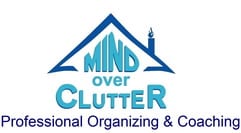Unwanted Inheritance
For children of parents with hoarding disorder, the mess remains after their parents pass away.
Newsweek By Hannah R Buchdahl Jan 26, 2011
Greg Martin wasn’t sure what to expect when his mother died last May, forcing him to return to his childhood home for the first time in nearly 18 years. The house, located on a pleasant block in San Diego, had always been cluttered, but now it was virtually uninhabitable. “There were piles as tall as me, six feet or so,” Greg said. “Where there used to be floor, there were trails—a foot and a half high, so you’d be walking on stuff.” Greg was forced to navigate through piles of magazines, papers, and books, plastic bags filled with thrift-store purchases, expired medicine bottles and literally tons of clothes. The only “living space” was a small pocket by the front door, where his mother, a colorful and fiercely independent woman, had collapsed shortly before her death at the age of 83. Greg, who has taken a leave of absence from his job, expected that cleaning out the house would take six months. It’s now been eight—and counting.
It’s a scenario that’s all too familiar to children of hoarders, who are burdened with far more than funeral arrangements, probate, and grief. They must also deal with the overwhelming piles of stuff that a parent with hoarding disorder accumulated over the years—in apartments, in houses, in storage facilities, and in garages. The items themselves may vary, but for many children of parents with hoarding disorder, the result is the same: the unwanted inheritance of a whole lot of nothing.
Greg Martin’s mother lived in this home until her death last year. (milbetweenus.blogspot.com)
The inclination to hoard typically begins in the teenage years, but experts say it can also be triggered—or made worse—by brain damage, a traumatic life event, or depression. As the people with hoarding disorder age, the piles grow, gradually eclipsing everything else in their lives.
“I’m dreading the day when the house needs to be cleaned out, more than I dread the day that they leave us,” laments Teresa C. of Winnipeg, Canada. Teresa, like several others interviewed for this story, did not want to give her last name because the hoarding is a source of tension in her family. For Teresa, inheriting her ageing parents’ hoard is a worry for the future.
Hoarding is an extremely complicated mental disorder that generally involves the acquisition of too many items, difficulty getting rid of items, and problems with organization and prioritization. Few statistics exist related to hoarding, because people with hoarding disorder rarely seek or accept treatment. But shows like Hoarders have certainly raised awareness and triggered a tidal wave of anecdotal evidence to suggest the illness, often associated with obsessive compulsive disorder, affects millions—either directly or indirectly. Support groups and message boards are flooded with stories about the once-secret life of a person with hoarding disorder and their families, and the constant battles to get the person to understand the impact their illness is having on their loved ones. That impact doesn’t end with their passing.
“Nine times out of 10, it’s not the person with hoarding disorder who suffers; it’s whoever comes after them to clean up,” says a very frustrated Bill L. of Colorado, who’s been working to clean his mother’s home, located in a different state, for almost five years. (She suffered a stroke and has since moved into assisted living.) It took a dozen people, and eight Dumpsters, to clear out the first floor. Still to go: the second floor, a large attic, a basement, a garage, and a storage locker that Bill says should be easy, but may not be.
Often, people with hoarding disorder are the only ones who know or understand their system of “organization,” keeping stock certificates amid expired receipts or diamonds amid a pile of junk jewelry. For survivors, the stress and strain related to the search itself may simply outweigh the potential of finding any objects with financial or sentimental value. Bill plans to return to his mother’s house soon with a professional cleanout crew. “That will mean forgetting about recovering anything of value,” he says, “including possible family heirlooms. If we tried to continue sifting the hoard, we’d still be at it 10 years later [and] we’d be jobless, homeless, and insane.”
Cory Chalmers, owner of California-based Steri-Clean, which provides help finding hoarding-remediation specialists around the globe, estimates a typical clean-up can range from $5,000 to $20,000 and beyond depending on the severity of the hoard, conditions inside the home, and regulations relating to the disposal of electronics and hazardous materials. His crews occasionally recover items of value that may help offset the cost of the cleanup. But more often than not, it’s a simple, yet massive case of quantity over quality. “Most of the elderly people with hoarding disorder we work with all say the same thing: they’re saving this because it all has use, ‘I want to give this to my son, and this to my daughter, and this to my grandchild. [But] no one wants that crap,” he says, not without sympathy. “What they see as this big investment to pass on is really a big stress on families and not even worth it. A lot of them don’t want it. They’d rather just walk away.”
Share where you found your best information on hoarding disorder.
 Julie Stobbe is a Trained Professional Organizer and Lifestyle Organizing Coach who brings happiness to homes and organization to offices, in person and virtually. She has been working with clients since 2006 to provide customized organizing solutions to suit their individual needs and situations. She uses her love of physical activity to reduce clutter, in your home and office. She guides and supports you in managing your time. If you’re in a difficult transition Julie can coach you to break-free of emotional clutter constraining you from living life on your terms. Get started by downloading Tips for Reorganizing 9 Rooms.
Julie Stobbe is a Trained Professional Organizer and Lifestyle Organizing Coach who brings happiness to homes and organization to offices, in person and virtually. She has been working with clients since 2006 to provide customized organizing solutions to suit their individual needs and situations. She uses her love of physical activity to reduce clutter, in your home and office. She guides and supports you in managing your time. If you’re in a difficult transition Julie can coach you to break-free of emotional clutter constraining you from living life on your terms. Get started by downloading Tips for Reorganizing 9 Rooms.
Contact her at julie@mindoverclutter.ca
X – Facebook – Facebook group Organizing Mind and Space

